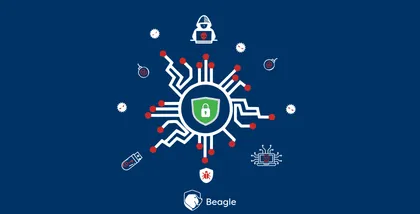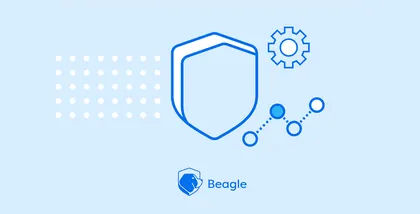
Small business owners often believe that they’re too small to be an attractive target for hackers. In fact, when was the last time you read about a small business being subject to a cyber-attack in the news?
It’s hard to recollect because it rarely gets any media coverage.
There’s a common misconception that cybersecurity breaches are often associated with large corporations or government organizations. But in reality, the chances of a small business being targeted by a hacker are much higher.
43% of cyber-attacks are targeted on small businesses, according to the Verizon 2019 Data Breach Investigations Report.
So, why do small businesses turn out to be a hacker’s favourite target?
Small business owners lack awareness about cybersecurity
Lack of knowledge about cybersecurity among small business owners is one of the primary concerns. The negligence by the owners, combined with a lack of proper training for employees and expertise to implement cyber defence mechanisms leads to a business being vulnerable. Cybercriminals are aware of the situation and this explains why attacks on smaller companies have been on the rise over the last few years.
In this age of digital transformation, small business owners must equip themselves with the bare necessary knowledge about cybersecurity.
Little to no cybersecurity in place to prevent attacks
Majority of small businesses do not have a dedicated team or any security solution in place to fight against cyber-attacks. A significant number of small businesses also follow poor security practices- like not installing security patches and updating software on time. This makes the job even easier for an attacker.
Small businesses cannot continue to remain ignorant about cybersecurity risks. Cyber-attacks impact small businesses in a very drastic way that can result in them going out of business.
It isn’t surprising that 60% of small enterprises go out of business within six months after a cyberattack.
Interestingly, another reason small companies have become an attractive target is that they act as a gateway to gain access to a larger company’s network. Smaller vendor or contractor companies associated with a larger organization may have trusted access to the networks and data.
The extent of data available with a small business might be less, but attackers can use them as a stepping stone to gain access to a larger company’s networks.
How you can protect your small business from cyber-attacks
Small business owners should stray away from the common assumption that there’s not much to steal from them and invest in cybersecurity.
But what is the first step to being cyber safe?
Training your employees.
Humans are the weakest link in a business’s cybersecurity defence. This shouldn’t come as a surprise because there’s clearly a lack of education on cybersecurity best practices. Taking the simple step of training your employees can help to decrease risk significantly.
At Beagle Security, we’re a SaaS company that specializes in website security so that you can test your websites and secure them from the latest security threats. However, website security solves only one piece of the puzzle. Securing your website is a vital cog in the whole cyberdefense conundrum.
But, protecting your small business from cyber-attacks shouldn’t be limited to just securing your website.
There’s a need to invest in additional security measures to prevent attacks. The key is to have multi-layered protection in place. This can include having firewalls, endpoint security solutions, maintaining data backups and creating an incident response and disaster recovery plan.
In this day and age, you must adopt proper strategies to protect your small business from cyber-attacks. It’s no longer a case of considering if security threats will arise, but rather thinking in terms of when.
Further reading
Understanding the Cybersecurity Landscape in 2021













